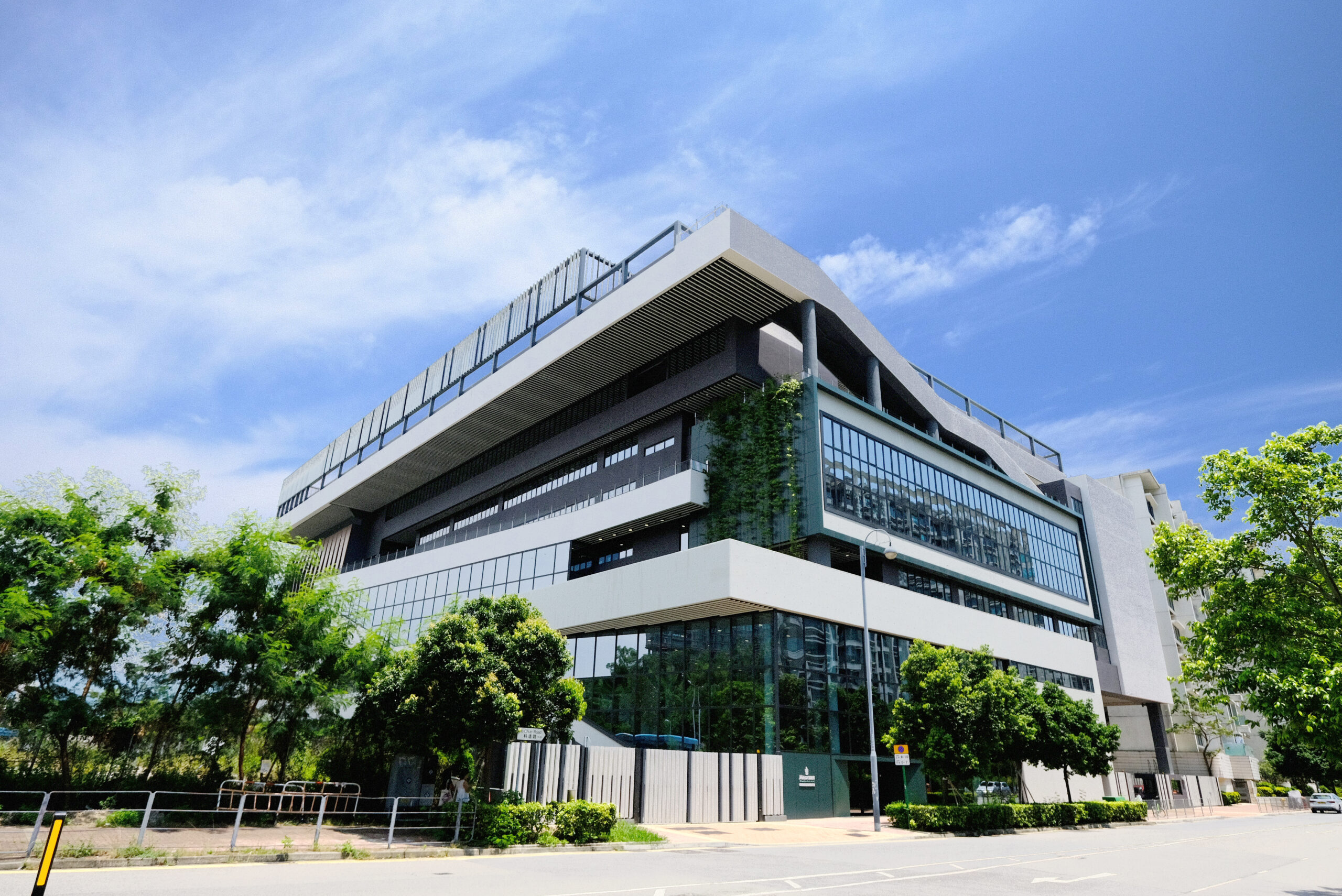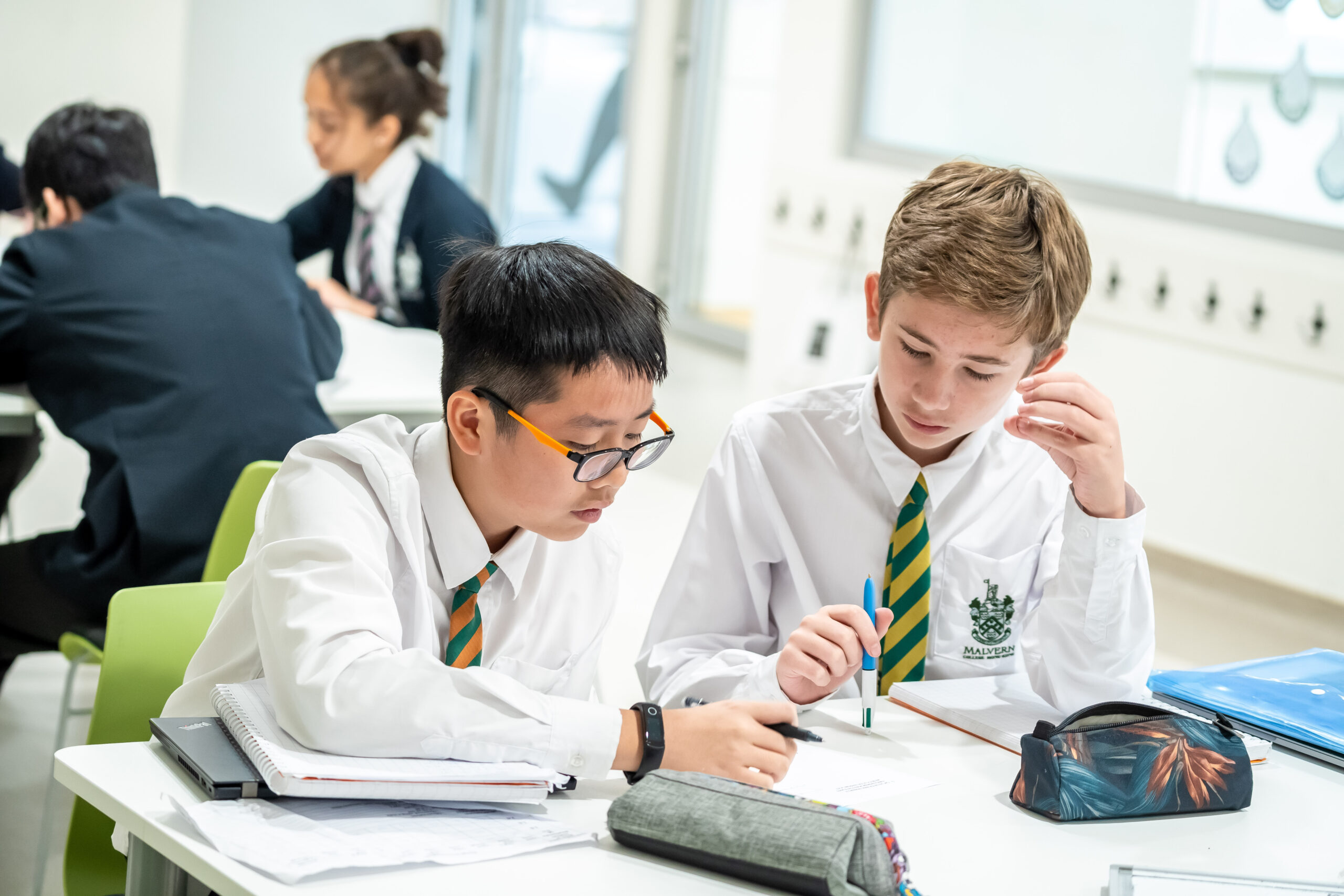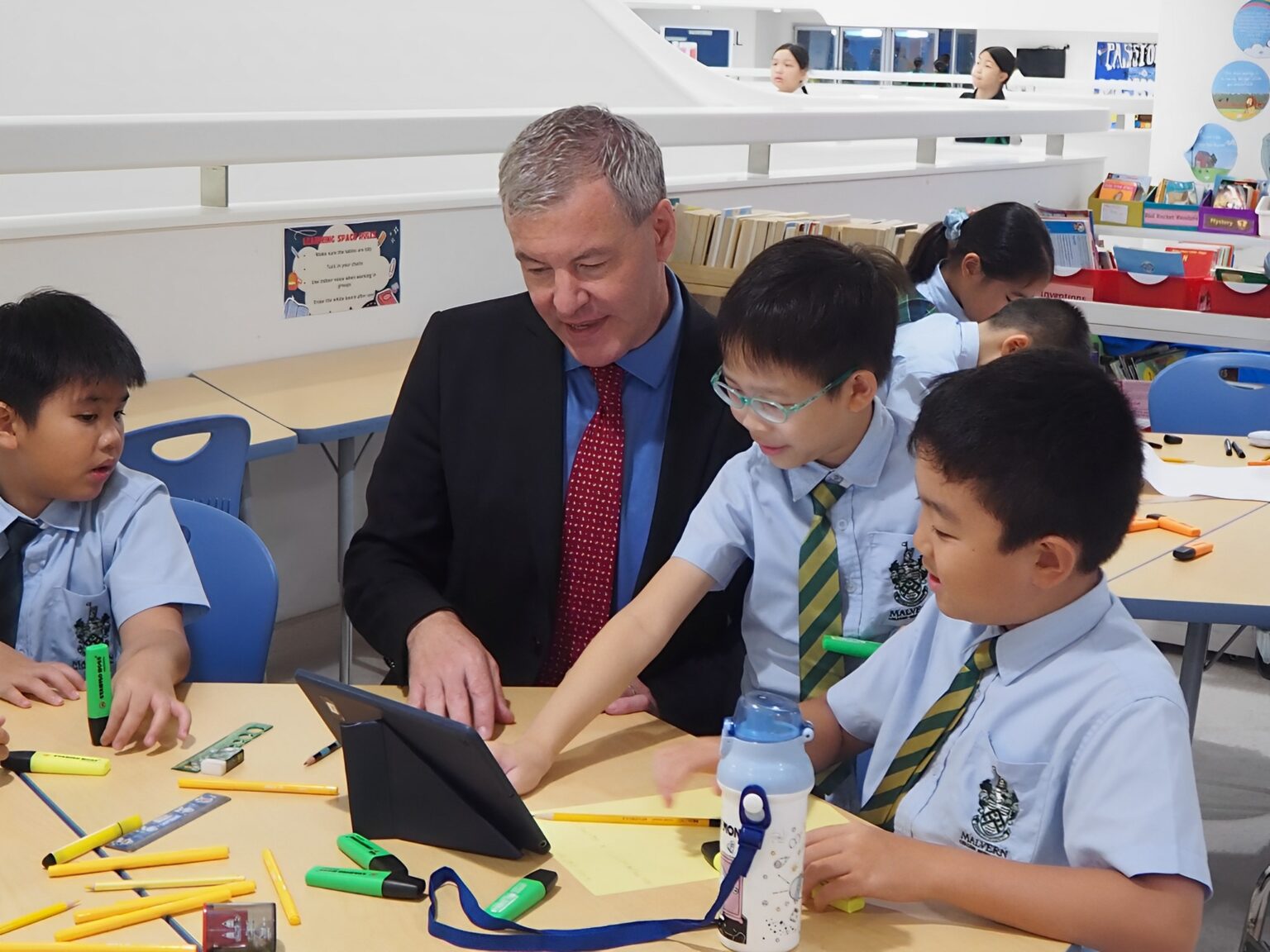In collaboration with Malvern College Hong Kong
In his 30-years-plus experience as an education professional, Paul Wickes has criss-crossed continents, working in Portugal, the UK, and Brazil. But he’s especially excited about the next chapter in his professional career — heading Malvern College Hong Kong.
“I’m really delighted to be working for the first time in a full IB school. I’ve worked many times in schools where they do a combination of the British GCSE or IGCSE and then IB. But it’s really exciting to work in a school that that provides the Primary Years Programme, then the Middle Years Programme, and then the Diploma Programme for preparation for university,” says Wickes.
Wickes’ new position in Hong Kong marks his return to the Malvern family, as he previously spent over 12 years at Malvern College UK, where he served as Senior Housemaster and Teacher of Economics, Politics, and Theory of Knowledge.
In a chat with The HK HUB, Wickes talks about navigating the academic landscape of the city, how Malvern College Hong Kong works to support their pupils’ academic ambitions and creative pursuits, and how he plans to implement new methods of educational instruction.
#1. How can parents best choose the right curriculum for their children studying in Hong Kong?
The most important thing is to consider how well the particular curriculum will prepare your son or daughter for life beyond school and how well it prepares them for university and life beyond university as well.
The International Baccalaureate, for example, with six different subjects, which includes two different languages, maths, at least one science, and a social science — it provides a really broad education, but it’s got academic rigour as well. It prepares the pupils so well for university.
I’ve lost count of the number of times ex-pupils have come back to me and said, “Mr Wickes, it’s true what you said. The first year of university was so easy because I did the IB,” because they’ve already done a 4,000-word extended research paper. They’ve built up those critical thinking skills, they’ve learnt to juggle various different deadlines and internal assessments.
#2. Do pupils fare better when they’re given more choice in their academic pursuits?
It makes sense to offer choices as long as they’re not closing down options in the future. So clearly, a pupil will be ill-advised to do physics and to drop biology and chemistry if they want to go into medicine. But I always find that pupils excel when they do subjects that they’re passionate about and that they really enjoy.
The world is so rapidly changing that it is quite interesting to think that for the pupils who are joining us now in preschool, 80% will do jobs that haven’t even been invented yet by the time they leave university.
I think more important than the choice of subject is those soft skills, which are so much in demand by employers. Obviously we want to absolutely maximise our academic scores and ensure that our pupils fulfil their academic potential. Our average IB score last year, which is our first cohort, was 39.4, over nine points higher than the world average.
That said, I firmly believe that acquiring those soft skills that are in demand in the workplace is more important than an extra one or two points of IB. So, inculcating those values and those qualities such as risk-taking and collaboration, open-mindedness, self-awareness, and resilience are actually what will enable our pupils to thrive in the future.
#3. How do you help pupils adjust to a new school or curriculum?
One of the challenges of international schools, particularly those that are linked to mother schools in the UK, is how to transfer and how to interpret that culture in a different context. One of the five Centres of Excellence at Malvern College is its British-style pastoral care. I think that really helps our international pupils to adapt and to settle in.

We’ve got a very strong tutor system and our staff have undergone lots of training in how to support and integrate new pupils. We’ve had a session of safeguarding training designed to ensure that our staff are aware of signs of stress, signs of distress, what they should be looking for, and how they can deal with them.
#4. How does Malvern promote inclusivity and cultural diversity among the pupils, staff, and parents?
We’ve got 33 different nationalities amongst our pupils. We’ve got teachers from a whole range of countries, including not just the UK — South Africa, Canada, teachers have just arrived from Spain, and other teachers just arrived from India.
But it’s not enough just to have pupils and teachers from different cultures. You need a culture yourself of deliberately promoting integration and international-mindedness.
The IB curriculum explicitly promotes inclusion, diversity, and international-mindedness. They’re also implicit, and they underpin the curriculum that we follow. And one of the responsibilities of our pupils is to recognise their responsibility as individuals, to their local community, and to the wider world.
#5. How do you encourage and maintain open communication with parents to support their child’s learning journey?
You need a variety of different ways of reaching out to parents because they’re extremely busy. And as a parent myself, I don’t always read emails that come from the school because I don’t always have time. So we need to be realistic.
We need to use a variety of different media [and] ways of reaching out. I wrote to all of the parents to invite them to a series of coffee mornings in the very first weeks of this academic year, where I want to introduce myself and the senior management team to each year group individually, to invite them to ask any questions, to let me know what it is that they love about Malvern College, and to give them an opportunity to let me know what they would like me to focus on.

But we need other forms as well because some parents are working, and they just don’t have time to do that. I know Dr Lister (the Founding Headmaster of Malvern College Hong Kong) wrote a newsletter every Friday afternoon, and I’m going to continue that tradition.
Also, there’s the parent portal that allows the parents to see what’s happening in their children’s lives, to see what materials they’re focusing on. And also it gives them tips on how they can support their own children with what they’re doing at the moment.
#6. How do you implement student well-being initiatives to support their mental health?
We should look at the pupils that we have in our care in the same way we do for our own children. So what do we want for our children? We want them to be successful academically and in other ways — in the music hall, on the stage, on the sports pitch, as well as in the exam hall.
However, we also want them to be happy. We want to protect them from excessive pressure. We want to protect and nurture their mental health. And we all know that pupils have been suffering, particularly as a result of the pandemic. And in Hong Kong it’s been particularly difficult and particularly long. Even as we come out of that and return to normal, there are, I think, some pupils that have got long-term damage to their mental health as a result of that. So we need to be aware of that and support it.
Our senior house counsellor has an MA in counselling, and we’ve expanded our counselling team this year. We certainly prioritise the mental health of our pupils. We can’t wrap them up in cotton wool, but at the same time, they won’t perform better if we just increase the pressure on them, and they have a mental breakdown.
#7. How does Malvern support pupils’ academic ambitions and their creative aspirations?
We need to recognise that it’s right for parents to be ambitious. It’s right for pupils themselves to be ambitious and to put themselves under pressure. But at the same time, we need to balance that with genuine care of their mental health.
One of the ways to find that balance, of course, is what we do outside the classroom. At Malvern, we’ve got three different curricula. There’s the academic curricula, the pastoral curricula, and our life skills programme. Our tutor system and our assemblies are all designed to support pupils in their emotional and mental health.
And then there’s a wide range of co-curricular opportunities where pupils can pursue performing arts, sports, outdoor activities, or any kind of passion or interest. It might be coding, it might be any number of different activities that are really good for pupils’ mental health that enables them to switch off and to enjoy something that they’re passionate about and to get the blood flowing, to get the creative juices flowing.
#8. How do you ensure that the school stays up-to-date with the latest educational trends, such as the use of generative AI?
I can understand that parents and educators are concerned that pupils can just go into ChatGPT, for example, and use AI to write their essays, which means that they’re not in any way engaged with the production of that knowledge. And there’s a real danger there.

The first danger is a lack of academic honesty, which means that if they’re discovered doing that, they will fail their exams; more importantly perhaps is the danger that they start to stop thinking. But I’m old enough to remember these same discussions happen with the introduction of calculators. So, I think we need to embrace change, but we need to do it responsibly. We need to have principles and guidelines. The IB’s position is that AI is a resource which pupils should be encouraged to use, provided they cite where they’ve used it, and they use it to complement their work and their research and not to substitute it.
#9. What are the other new learning and instructional techniques that will change the way pupils acquire knowledge?
I’m particularly keen on cognitive science because it’s based upon a scientific understanding of how the brain works. So for example, [Barak] Rosenshine has been developing his principles and sharing those in terms of how memory works and how we convert short-term memory into long-term memory. And how, as a result, we need to change our instructional design to make sure that we’ve built in sequencing and modelling and retrieval practice.
We need to scale down what we’re presenting and break it down into stages. For instance, pupils don’t get better at writing essays by writing lots of essays. They get better at writing essays by practising the following aspects: What does a really good introduction look like? How do we move from an introduction to that first paragraph? What are the elements of that first paragraph? Let’s look at seven or eight different examples of first paragraphs. Which ones do you prefer? Why? Can you improve this one? And that’s all based upon cognitive science.
We need academic leaders, not just academic managers. And academic leaders need to lead their staff by sharing their understanding of education and inspiring them to produce lessons and create opportunities that enable pupils to learn as effectively as possible.
If you’re interested in learning more about Malvern College Hong Kong, the upcoming information session is scheduled on September 19, 2023. This event provides a unique opportunity for you to visit the school, meet the academic team, and gain insights into the curriculum. For more details about the event and registration, please visit: https://fs23.formsite.com/mchk/eventform/index.

Paul Wickes is an education professional and an expert in EAL (English Additional Learning). He has a B.Sc. (Econ) from the London School of Economics and a post-graduate Diploma in EAL (English Additional Learning) from RSA/University of Cambridge, as well as a Master of Arts in Education from University College London (UCL). Wickes spent over 12 years at Malvern College UK, after which he served as Head of Site at The British School in Rio de Janeiro, where he oversaw 2,200 pupils aged from 2–18 years old.
(This interview has been edited and condensed.)
Disclaimer: The opinions expressed in this publication are those of the authors and do not necessarily represent the views of The HK HUB.
Image credits: Courtesy Malvern College Hong Kong




